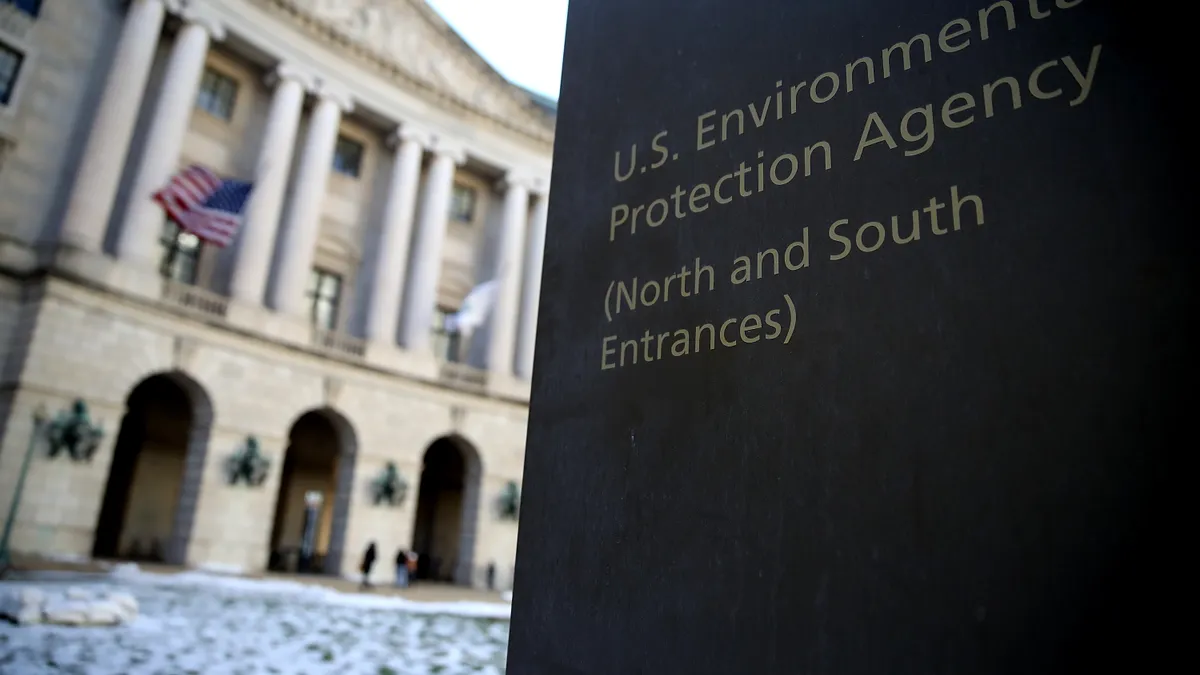The Biden administration still hasn’t named an official assistant administrator for the U.S. EPA’s Office of Land and Emergency Management, and the agency has declined to share more about “future personnel decisions” or next steps for that role. The lead OLEM position has been up in the air for more than 18 months since its previous nominee, Carlton Waterhouse, announced he would leave the agency.
It’s unclear how or if OLEM leadership could change in the next few months, especially with the upcoming presidential election. Barry Breen, who joined the agency in 2002 and previously held the acting assistant administrator title, is currently the principal deputy assistant administrator. Anyone new who is nominated for the role would need to be confirmed by Congress.
The OLEM assistant administrator position is at the forefront of waste and recycling industry policy at the national level, including oversight of matters related to Superfund, Resource Conservation and Recovery, brownfields, emergency response and other land remediation issues.
In recent years, OLEM has been managing a large amount of grant funding for recycling projects, much of which was set aside by the Infrastructure Investment and Jobs Act passed in 2021. It is also managing initiatives related to per-and polyfluoroalkyl substances, ongoing Superfund matters and the EPA’s new food waste strategy and plastic strategy.
Waterhouse was nominated by the Biden administration in 2021, but the nomination was twice held up in the Senate Committee on Environment and Public Works due to a tied vote that stalled the nomination from moving forward, first in December 2021 and again in April 2022.
At that time, Democrats and Republicans disagreed over whether he would fill the role with an “unbiased” perspective, specifically about the energy industry. After more than a year and a half of delays, Waterhouse announced he would leave the agency to return to his role as a professor at Howard University.
Waterhouse, who had served as a deputy assistant administrator at the EPA, long said he would focus on environmental justice, PFAS management and climate change efforts if confirmed as assistant administrator. That vision reflected the Biden administration’s priorities and the EPA’s long-term plans to focus more specifically on environmental justice efforts.
Another previous assistant administrator also faced a long road to confirming their nomination. Peter Wright, the assistant administrator during the Trump administration, had previously served as the managing counsel at the Dow Chemical Co. He had a background in Superfund policy, a focus for the EPA under former administrator Scott Pruitt. His nomination took 16 months to approve in Congress, in part because of opposition from Democrats and questions about whether his background would be a conflict of interest due to Dow’s payment obligations under Superfund at the time.
Before Wright took on the position, Mathy Stanislaus was assistant administrator for the majority of the Obama administration. In his role, he was known for introducing the agency’s sustainable materials management work. When Stanislaus left the role in late 2016, his advice for his successor was to continue to advance partnerships with stakeholders in state, local and global leadership positions as well as with residents in low-income communities that face additional barriers to participating in advocacy efforts.
Prior to 2015, the office was known as the Office of Solid Waste and Emergency Response, or OSWER. EPA updated the name to better reflect “the breadth and depth of our programmatic footprint in protecting human health and the environment,” though day-to-day responsibilities of managing its main programs did not change.











